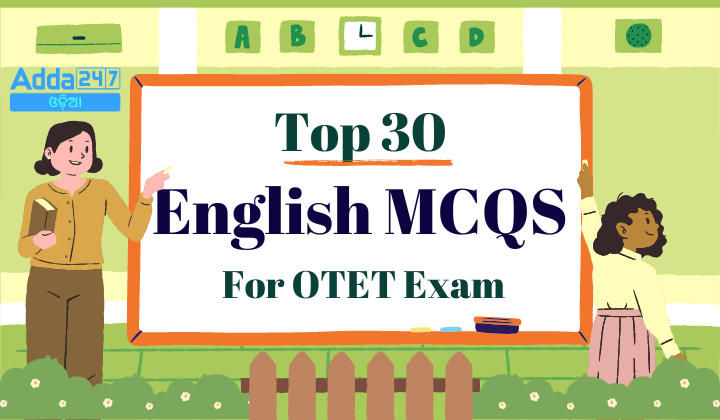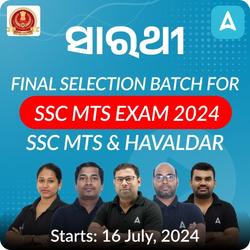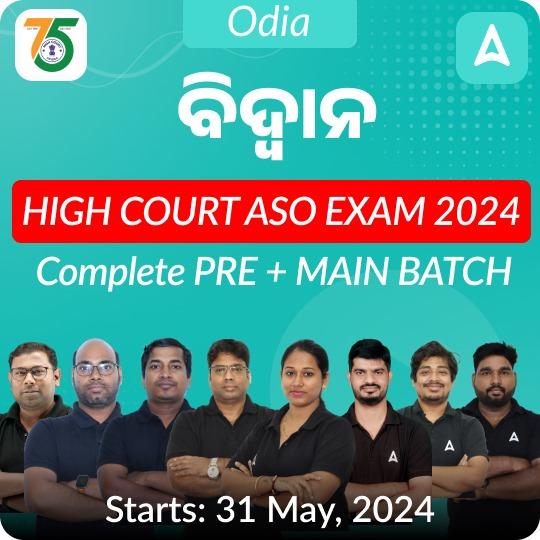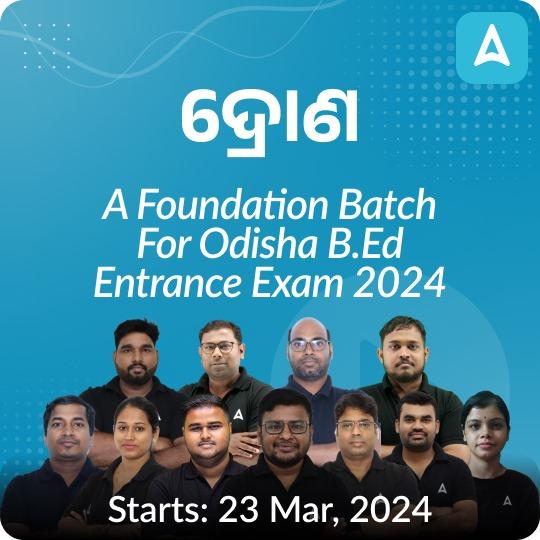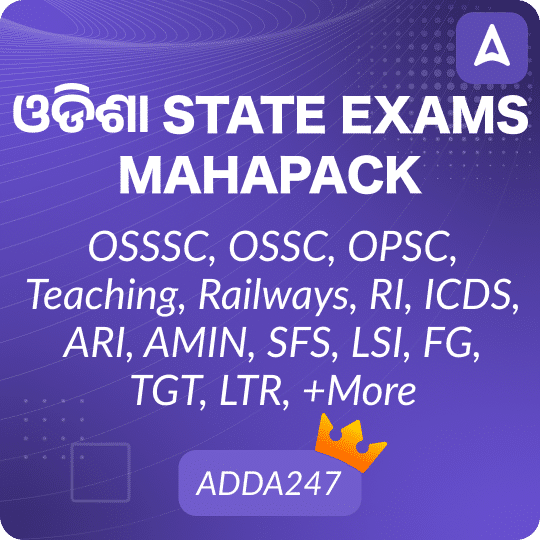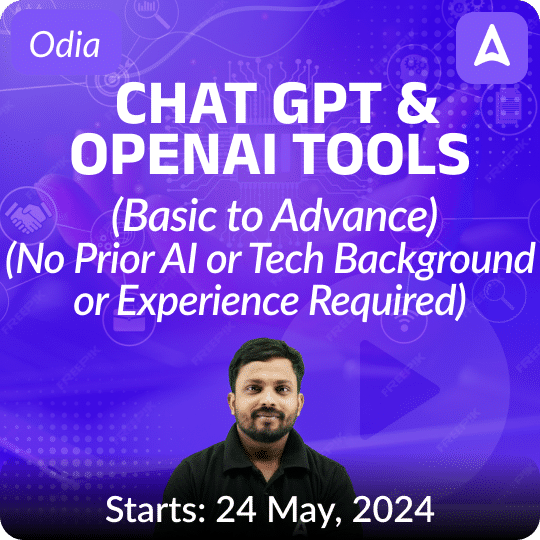Preparing for the OTET exam requires a strong foundation in English grammar and comprehension. Our curated list of the top 30 English Multiple Choice Questions (MCQs) covers key areas such as idioms and phrases, synonyms and antonyms, parts of speech, verb tenses, and correct verb forms. These questions are designed to test and enhance your understanding of essential concepts, ensuring you are well-equipped for the exam. Each question is carefully selected to reflect the types of questions likely to appear on the test, providing a valuable tool for effective exam preparation.
Top 30 English MCQS For OTET Exam
- What is the passive voice of “They are repairing the roads”?
(a) The roads are being repaired by them.
(b) The roads is being repaired by them.
(c) The roads has been repaired by them.
(d) The roads was repaired by them.
Ans: (a) The roads are being repaired by them. - How do you convert “He said, ‘I might go to the party.'” into indirect speech?
(a) He said that he might go to the party.
(b) He said that he may go to the party.
(c) He says that he might go to the party.
(d) He said that I might go to the party.
Ans: (a) He said that he might go to the party. - What does the word “epitome” mean?
(a) A summary of events.
(b) A typical example.
(c) An error in judgment.
(d) A complex problem.
Ans: (b) A typical example. - How is the word “serendipity” correctly used in a sentence?
(a) The serendipity of finding a twenty-dollar bill on the street made her day.
(b) His serendipity was the best in the class.
(c) They are serendipity about their work.
(d) It is serendipity that they completed the task on time.
Ans: (a) The serendipity of finding a twenty-dollar bill on the street made her day. - She ___ here since 2010. Use Correct tense form in the blank.
(a) live
(b) lives
(c) lived
(d) has lived
Ans: (d) has lived - What is the passive voice of “The committee approved the proposal”?
(a) The proposal is approved by the committee.
(b) The proposal was approved by the committee.
(c) The proposal will be approved by the committee.
(d) The proposal had been approved by the committee.
Ans: (b) The proposal was approved by the committee. - How do you convert “He said, ‘I will come tomorrow.'” into indirect speech?
(a) He said that he will come tomorrow.
(b) He said that he would come the next day.
(c) He says that he will come tomorrow.
(d) He said that I will come tomorrow.
Ans: (b) He said that he would come the next day. - How do you spell the word meaning “able to be done”?
(a) Feaseable.
(b) Feasible.
(c) Fesable.
(d) Feesable.
Ans: (b) Feasible. - How is the word “accommodate” correctly spelled?
(a) Acomodate.
(b) Accommodate.
(c) Acommodate.
(d) Accomodate.
Ans: (b) Accommodate. - She is ___ honest person.
(a) a
(b) an
(c) the
(d) no article needed
Ans: (b) an - She ___ to the store yesterday.
(a) go
(b) goes
(c) went
(d) gone
Ans: (c) went - She lives ___ New York.
(a) on
(b) in
(c) at
(d) over
Ans: (b) in - By this time next year, I ___ my degree.
(a) will complete
(b) will have completed
(c) am completing
(d) completed
Ans: (b) will have completed - What part of speech is the word “quickly”?
(a) Noun.
(b) Verb.
(c) Adjective.
(d) Adverb.
Ans: (d) Adverb. - How can listening skills be effectively assessed?
(a) Through silent reading tasks.
(b) By conducting listening comprehension tests.
(c) By asking students to write essays.
(d) By evaluating grammar knowledge.
Ans: (b) By conducting listening comprehension tests. - Which method is best for assessing speaking skills?
(a) Multiple-choice tests.
(b) Oral presentations and conversations.
(c) Written exams.
(d) Listening tests.
Ans: (b) Oral presentations and conversations. - How can teachers help students overcome the fear of speaking English?
(a) By correcting every mistake.
(b) By creating a supportive and encouraging environment.
(c) By avoiding speaking activities.
(d) By focusing on written exercises.
Ans: (b) By creating a supportive and encouraging environment. - Why is context important in language teaching?
(a) It helps with memorization.
(b) It makes language learning relevant and engaging.
(c) It simplifies teaching.
(d) It reduces the need for visual aids.
Ans: (b) It makes language learning relevant and engaging. - Which method is most effective for teaching creative writing?
(a) Dictation.
(b) Writing prompts and free writing exercises.
(c) Copying from textbooks.
(d) Grammar correction drills.
Ans: (b) Writing prompts and free writing exercises. - What does the word “pervasive” mean?
(a) Limited to a small area.
(b) Spreading widely throughout an area or group.
(c) Easy to remove.
(d) Only in one place.
Ans: (b) Spreading widely throughout an area or group. - How do you spell the word meaning “excessively talkative”?
(a) Garrulous.
(b) Garrolous.
(c) Garrilous.
(d) Garulous.
Ans: (a) Garrulous. - What is the relationship between the four basic language skills?
(a) They are completely independent.
(b) Mastery of one automatically ensures mastery of others.
(c) They are interdependent and reinforce each other.
(d) They are taught separately.
Ans: (c) They are interdependent and reinforce each other. - What should be the first focus in developing language skills?
(a) Advanced writing techniques.
(b) Encouraging listening and speaking activities.
(c) Literary analysis.
(d) Grammar and vocabulary drills.
Ans: (b) Encouraging listening and speaking activities. - What is a synonym for “melancholy”?
(a) Joyful.
(b) Sadness.
(c) Anger.
(d) Excitement.
Ans: (b) Sadness. - What is an antonym for “lucid”?
(a) Clear.
(b) Confusing.
(c) Bright.
(d) Logical.
Ans: (b) Confusing. - “In the garden of dreams,
Where the flowers bloom bright,
Hope blossoms anew,
In the soft morning light.”
What is the main theme of the poem?
(a) The uncertainty of dreams.
(b) The beauty of a garden.
(c) The renewal of hope.
(d) The harshness of reality.
Ans: (c) The renewal of hope. - What literary device is used in “Hope blossoms anew”?
(a) Metaphor.
(b) Simile.
(c) Personification.
(d) Hyperbole.
Ans: (c) Personification. - What does the word “alleviate” mean?
(a) To make worse.
(b) To relieve or reduce.
(c) To completely eliminate.
(d) To ignore.
Ans: (b) To relieve or reduce. - “Beneath the canopy of the ancient forest, the air was cool and filled with the scent of pine. Birds chirped from high branches, and the forest floor was carpeted with a layer of soft moss. It was a place untouched by time, where nature reigned supreme.”
What is the primary setting of the passage?
(a) A desert.
(b) An ancient forest.
(c) A bustling city.
(d) A coastal beach.
Ans: (b) An ancient forest. - How is the air described in the forest?
(a) Warm and dry.
(b) Cool and filled with the scent of pine.
(c) Hot and humid.
(d) Cold and damp.
Ans: (b) Cool and filled with the scent of pine.

